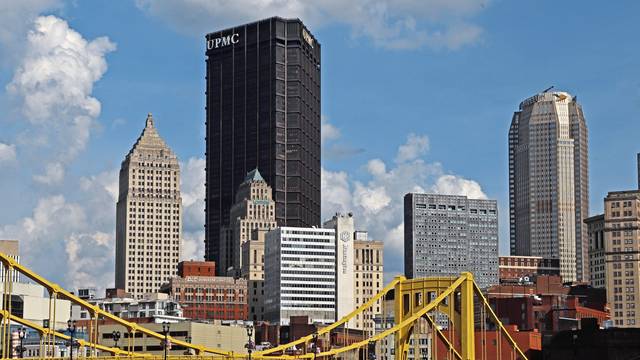https://staging.triblive.com/local/pittsburgh-floats-bonds-for-capital-projects-as-it-awaits-federal-pandemic-relief-money/
Pittsburgh floats bonds for capital projects as it awaits federal pandemic relief money

About $17 million in street improvements, $10 million to reduce traffic congestion and $4.5 million to repair landslides are among the projects that will be funded with about $46.6 million in bonds Pittsburgh is floating this week.
The price of the bonds was locked in on Tuesday at a 2.5% interest rate, which is about what city finance leaders forecast in January.
The total amount being borrowed is about $55.3 million, which includes financing costs, the city said.
The city used the New York and Oakland, Calif.-based firm Siebert Williams Shank & Co. to shepherd the transaction. The company is minority and women-owned.
It has worked with the city, its Sports and Exhibition Authority, Pittsburgh Water and Sewer Authority and Pittsburgh Public Schools, according to its regional managing director, Derek McNeil.
City officials said there was broad interest in the bonds, which attracted interest from 48 investors and is indicative of confidence in Pittsburgh’s financial outlook.
Rating agencies Fitch and S&P Global Ratings both gave the city a AA- bond rating, and in reports both noted the city’s finances had been able to withstand the stresses of the coronavirus pandemic.
The agencies differed on their forecast for the city’s future, with S&P giving the city a “stable” outlook while Fitch offered a “negative” outlook because of the uncertainties of the pandemic.
The rating represented a slight downgrade from 2020, when the city’s outlook was rated as “positive” by Fitch.
Bond ratings range from AAA — the highest rating — to D, which is also known as junk bond status. That’s a rating the city reached in 2004, when the city required state oversight under Act 47 to avoid bankruptcy.
The bonds are earmarked for capital improvement projects and not general operations.
They are structured so the city pays less in debt service, about $2.7 million each year through 2027, when it will jump to $5.3 million, to help offset losses because of the pandemic, Douglas Anderson, the city’s finance director, said.
About $5 million of the borrowing can be used for emergencies, city council learned in January when they initially discussed the bonds.
If a federal coronavirus relief package isn’t approved by July, the city faces a general fund shortfall of $26 million and would have to cut 600 jobs. But Senate negotiations on a $1.9 trillion relief package continued Wednesday with the expectation a package would be passed soon.
Copyright ©2025— Trib Total Media, LLC (TribLIVE.com)
